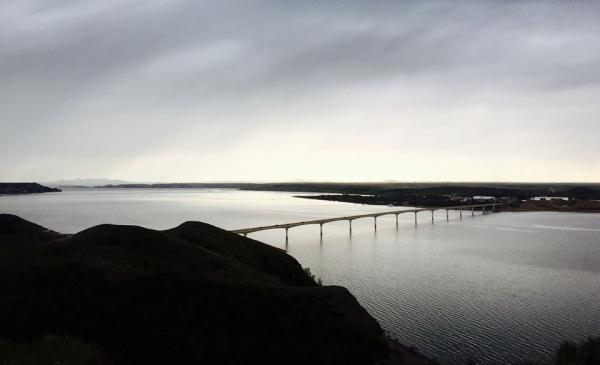
- Details
- By Native News Online Staff
WASHINGTON — A federal judge last Friday ruled that royalties from oil and gas will not be paid until a conflict decision is issued between the Mandan, Hidatsa and Arikara Nation (MHA Nation), also known as the Three Affiliated Tribes, and the state of North Dakota over mineral rights beneath the riverbed of the Missouri River on the Fort Berthold Reservation.
Last month, the Three Affiliated Tribes sued the U.S. government due to the Department of the Interior’s failure to complete title and mapping work in the portion of the riverbed on their reservation.
On Friday, U.S. District Judge Amy Berman Jackson said that no oil and gas royalties in dispute will be paid until the lawsuit is settled.
The lawsuit, filed on July 15, said the Interior Department is seeking to illegally strip the MHA Nation of part of their reservation that was ceded to the tribes before North Dakota became a state.
The tribes maintain that ownership of the riverbed goes back to treaties. The first treaty the tribes reference is in a 1825 treaty that recognized the tribes’ “country” and promised payment for property taken. The second treaty is the Fort Laramie Treaty of 1851, which set aside vast territory for the tribes south and west of the Missouri River.
The tribes argue that their ownership of the land in the Missouri riverbed in question has been upheld by several federal court opinions dating back to 1936.
In May 2020, the Interior Department issued an opinion that reversed those federal opinions that said the land belonged to the state of North Dakota. The tribes say the Interior Dept. Solicitor Daniel Jarjani’s reversal was done in error and was illegal.
The ownership issue has implications of more than $100 million in unpaid oil and gas royalties and future payments from oil drilling in the river, which was dammed during the 1950s.
Final documents in the case are due by October.
More Stories Like This
Native News Weekly (August 25, 2024): D.C. BriefsUS Presidents in Their Own Words Concerning American Indians
Top Five Most-Read Stories in 2025 on Native News Online
Tribal Nations in SD are Betting on Tourism on Reservations
This Day in History — Dec. 29, 1890: Hundreds of Lakota Killed During the Wounded Knee Massacre
Help us defend tribal sovereignty.
At Native News Online, our mission is rooted in telling the stories that strengthen sovereignty and uplift Indigenous voices — not just at year’s end, but every single day.
Because of your generosity last year, we were able to keep our reporters on the ground in tribal communities, at national gatherings and in the halls of Congress — covering the issues that matter most to Indian Country: sovereignty, culture, education, health and economic opportunity.
That support sustained us through a tough year in 2025. Now, as we look to the year ahead, we need your help right now to ensure warrior journalism remains strong — reporting that defends tribal sovereignty, amplifies Native truth, and holds power accountable.
 The stakes couldn't be higher. Your support keeps Native voices heard, Native stories told and Native sovereignty defended.
The stakes couldn't be higher. Your support keeps Native voices heard, Native stories told and Native sovereignty defended.
Stand with Warrior Journalism today.
Levi Rickert (Potawatomi), Editor & Publisher

